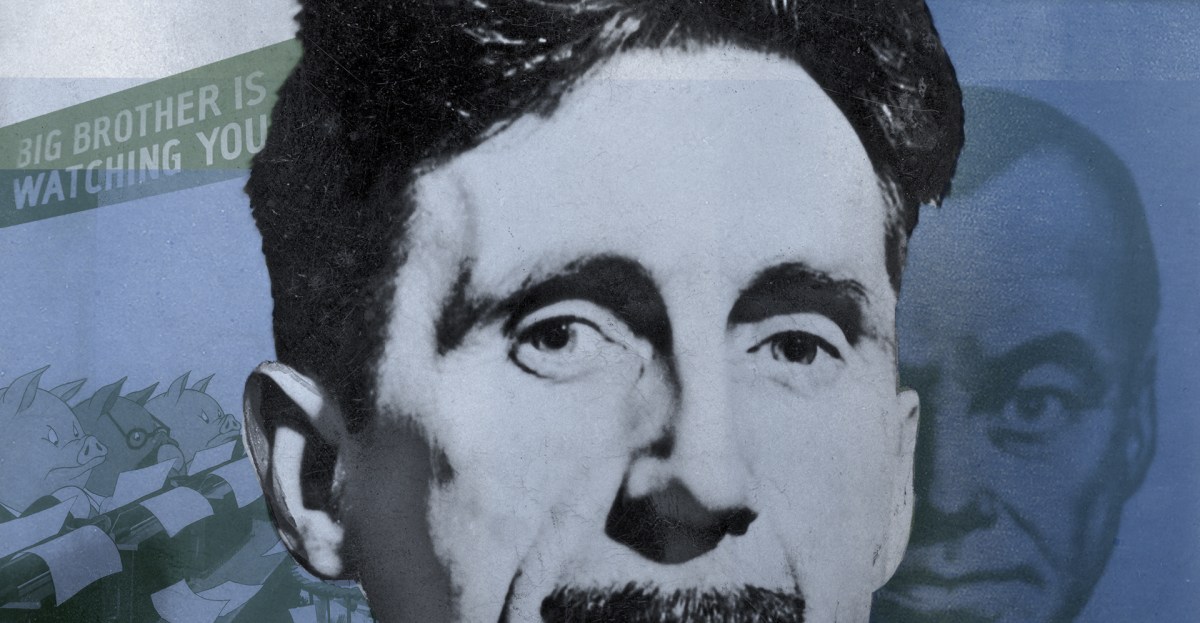Mind Games and Manipulation: Gaslighting Tactics from Orwell's 1984 to Modern Society

When my daughter recently came home with an assignment on George Orwell's 1984, it reminded me of my own experience reading the book in high school. Revisiting it as an adult, I was struck by how relevant its themes remain, particularly the concept of gaslighting. While the term has exploded into mainstream discourse in recent years, its origins go much further back. The term "gaslighting" comes from the 1938 British stage play Gas Light, later adapted into films in 1940 and 1944. At its core, gaslighting is a deliberate strategy of psychological manipulation designed to make victims question their perception of reality, eroding their confidence and sense of self.
Orwell's 1984 offers a chilling blueprint for gaslighting on a systemic scale, where an entire government is dedicated to rewriting reality. The Party's famous slogan, "Who controls the past controls the future. Who controls the present controls the past," epitomizes the essence of gaslighting: dismantling objective truth to reshape collective perception. What once began as a personal psychological tactic has evolved into a powerful tool used across intimate relationships, political discourse, corporate messaging, and digital platforms.
In this article, we will explore how gaslighting operates, from its depiction in Orwell's dystopia to its manifestations in contemporary society. We’ll examine its psychological mechanisms, its modern applications, and, crucially, strategies to resist it. Understanding these dynamics is not just an intellectual exercise—it’s a vital skill for anyone navigating today’s increasingly manipulative world.
Gaslighting in Orwell’s 1984: A Blueprint for Totalitarian Manipulation
George Orwell’s 1984 presents a masterclass in institutional gaslighting, where the totalitarian regime of Oceania doesn’t merely suppress truth but systematically reconstructs reality. The Party's manipulation extends beyond propaganda, creating an all-encompassing system designed to dismantle individual perception and autonomous thought.
At the heart of this manipulation is the concept of “doublethink”—the ability to hold two contradictory beliefs simultaneously and accept both as true. This psychological mechanism forces individuals to deny their rational understanding of the world. Winston Smith, the novel’s protagonist, experiences this firsthand as he is coerced into accepting lies as truth. In doing so, Orwell illustrates the ultimate form of gaslighting: compelling individuals to distrust their own minds.
The Party’s use of surveillance further amplifies its control. Through omnipresent telescreens and the Thought Police, citizens are constantly monitored, creating an environment where self-censorship becomes instinctive. This perpetual observation doesn’t just control behavior; it alters psychological processing, as individuals preemptively adjust their thoughts to align with the Party’s expectations.
Perhaps the most chilling example of gaslighting in 1984 is the Ministry of Truth’s systematic rewriting of historical records. Documents are continuously altered to align with the Party’s current narrative, erasing any possibility of verifying past events. Winston, tasked with retroactively changing newspaper articles, becomes an unwilling architect of collective memory manipulation, a process disturbingly familiar in today’s world of "alternative facts" and revisionist histories.
Orwell’s 1984 reveals gaslighting not as an isolated psychological tactic but as a comprehensive method of social control. By rendering opposition unimaginable and reshaping the parameters of thought itself, the Party wields gaslighting as a weapon to:
- Maintain absolute political control,
- Prevent collective resistance,
- Create perpetual psychological uncertainty, and
- Transform human perception into a malleable tool of the state.
Through this dystopian vision, Orwell warns of the devastating power of psychological manipulation as a tool for authoritarian control—a warning that remains as relevant today as it was when the novel was first published.
The Psychology of Gaslighting: How Manipulation Works
Gaslighting is not random; it is a calculated psychological strategy that exploits vulnerabilities in human cognition and emotion. By leveraging principles such as cognitive dissonance, emotional dependency, and isolation, gaslighters systematically erode their victims’ sense of reality.
The Stages of Gaslighting
- Distortion of Reality
- Subtly contradicts the victim’s perceptions.
- Gradually undermines confidence in personal judgment.
- Uses selective information and context manipulation.
- Undermining Personal Confidence
- Questions the victim’s memory and recollection of events.
- Misrepresents the past with phrases like, “That never happened.”
- Erodes self-trust and independent thinking.
- Isolation and Dependency
- Cuts off external support systems.
- Positions the gaslighter as the sole “reliable” source of truth.
Neurologically, sustained gaslighting triggers chronic stress responses, increasing cortisol levels and leading to anxiety, cognitive impairment, and heightened suggestibility. Over time, victims may internalize the manipulator’s narrative, creating a psychological state where self-doubt becomes the default.
Defense Mechanisms Against Gaslighting
To resist gaslighting, individuals can employ key psychological strategies:
- Reality Anchoring: Keep independent documentation of events and seek external verification.
- Critical Thinking: Cultivate skepticism and systematically question narratives.
- Support Systems: Build trust-based relationships to counter isolation.
Understanding gaslighting’s psychological mechanisms is the first step toward recognizing and resisting manipulation—whether it occurs in personal relationships or on a societal scale.
Modern Manifestations of Gaslighting: From Relationships to Institutions
Gaslighting has evolved far beyond interpersonal relationships, becoming a pervasive tool of manipulation in institutions, media, and digital platforms. Its modern applications reveal a sophisticated strategy for controlling narratives, suppressing dissent, and maintaining power.
In Intimate Relationships
Gaslighting in relationships often involves emotional manipulation with tactics like:
- Denying past statements or events.
- Minimizing the victim’s feelings.
- Shifting blame to create self-doubt.
- Isolating the victim from external support.
In Institutions
- Workplace Settings
- Dismissing employee concerns.
- Reframing organizational failures to shift blame.
- Discrediting whistleblowers to maintain control.
- Political Propaganda
- Denying verifiable facts.
- Rewriting history to align with current narratives.
- Delegitimizing dissent through labels like “fake news.”
On Digital Platforms
Social media and technology platforms amplify gaslighting through:
- Algorithmic echo chambers that reinforce manipulated realities.
- Coordinated disinformation campaigns.
- Anonymous harassment that erodes trust in facts.
These modern manifestations demonstrate that gaslighting no longer requires a central authoritarian regime, as in Orwell’s 1984. Instead, it thrives through decentralized mechanisms enabled by technology, creating a fragmented reality where objective truth becomes increasingly elusive.
Strategies for Resisting Manipulation
Building resilience against gaslighting requires a combination of cognitive, emotional, and practical strategies:
- Cognitive Tools
- Maintain independent records and seek corroboration.
- Practice systematic questioning of narratives.
- Strengthen intellectual skepticism and media literacy.
- Emotional Intelligence
- Recognize and validate your emotions.
- Set clear personal boundaries to reject manipulative behavior.
- Build confidence in your perceptions and experiences.
- Practical Safeguards
- Diversify information sources.
- Avoid inflammatory content that exploits emotional vulnerabilities.
- Foster supportive networks to counter isolation.
These strategies empower individuals to maintain their autonomy, protect their mental health, and resist the pervasive reach of manipulation in modern society.
Navigating a Manipulative World
Gaslighting, whether personal or institutional, has become a defining challenge of our era. From Orwell’s dystopian warnings to today’s digital realities, the capacity to manipulate perception and erode truth is more pervasive than ever.
Resisting gaslighting requires more than individual vigilance; it demands collective action. By fostering empathy, critical thinking, and transparency, we can rebuild shared frameworks of trust and understanding. In a world rife with confusion and division, clarity and connection are our most powerful tools.
Gaslighting thrives in uncertainty; the antidote lies in truth.
Extra:
If you are interested in learning more, I encourage you to read American University historian Laura Beers' book Orwell's Ghosts: Wisdom and Warnings for the Twenty-First Century
Also check out this podcast interview where she discusses Orwell's legacy and has a great quote:

"I think the lesson that those of us in the West could do best to heed is this idea that people need to defend the right to say that two plus two equals four, but that doing this is a responsibility as much as it is a right. Being given the right to speak your truth is also an obligation to have a truth to speak. It’s not a right to say that two plus two equals five, it’s a right to articulate truth in the space of lies and disinformation and to speak out against lies and disinformation. And that was something that Orwell was committed to throughout his own career, in his journalistic writing and in his personal politics. If he does have a legacy for the 21st century, it’s this power of facing unpleasant facts and standing up for truth in a time of disinformation and doublethink. That is his most important legacy."

